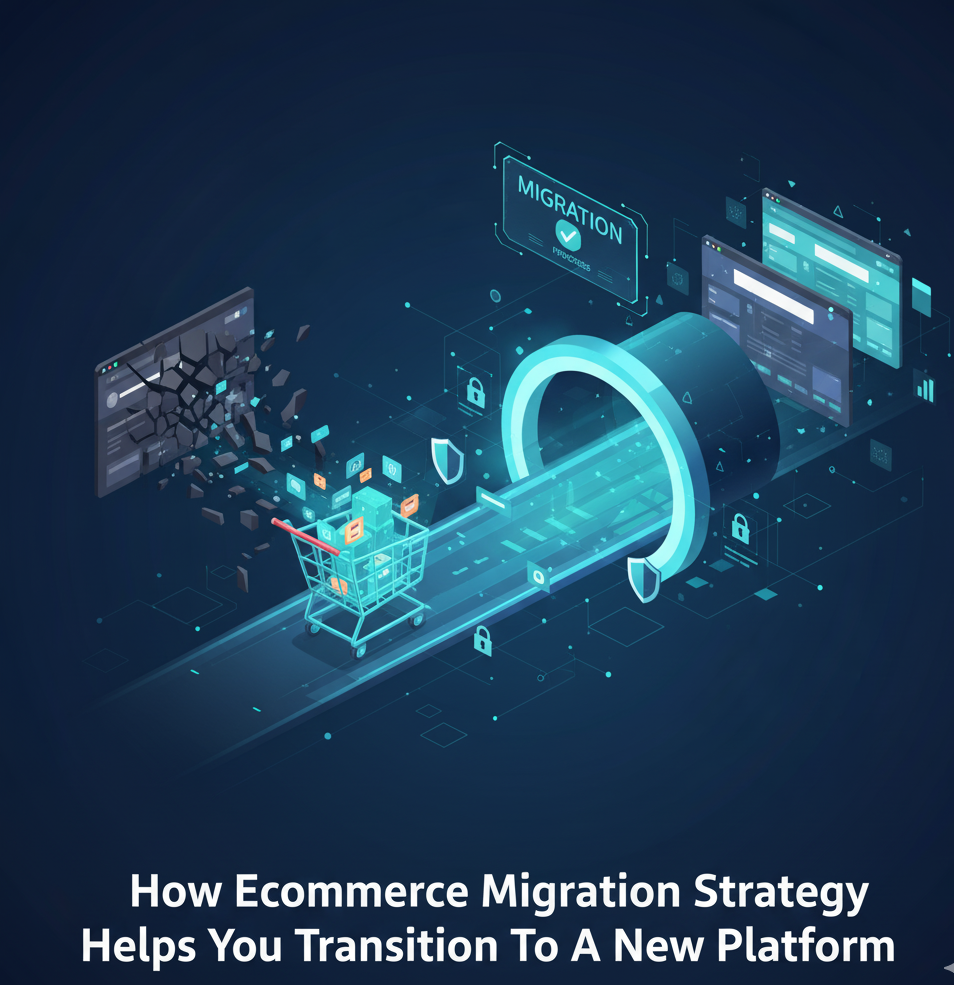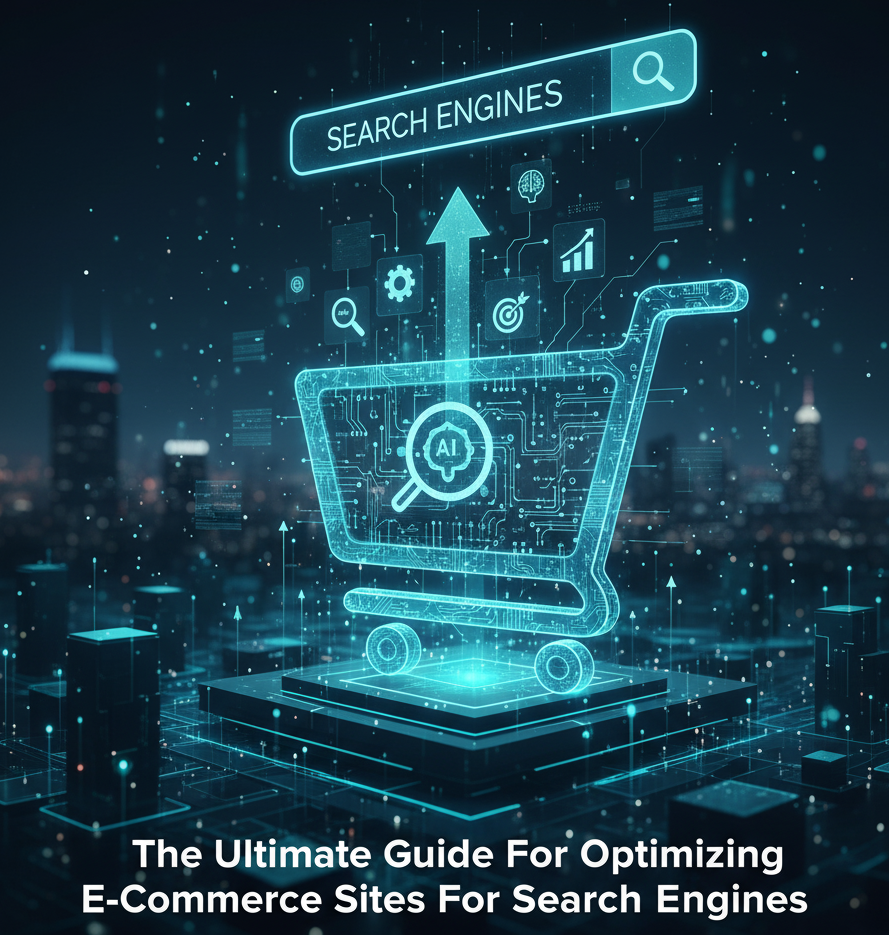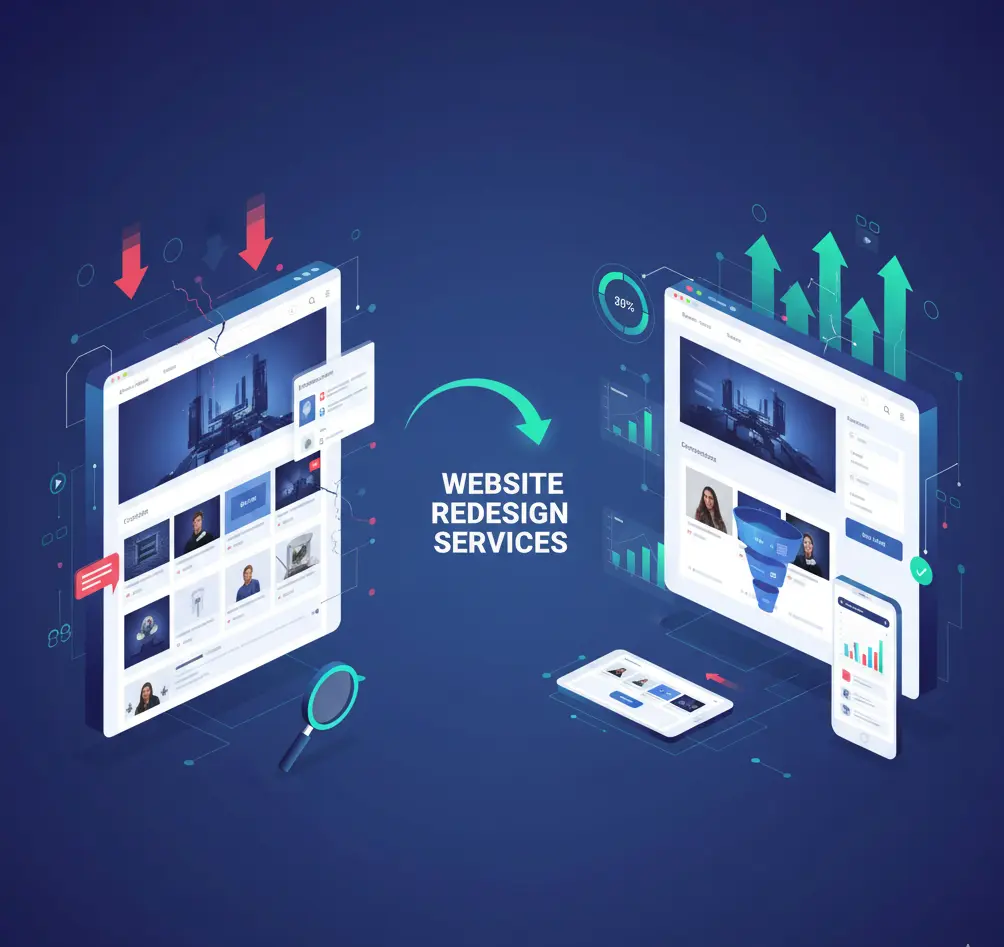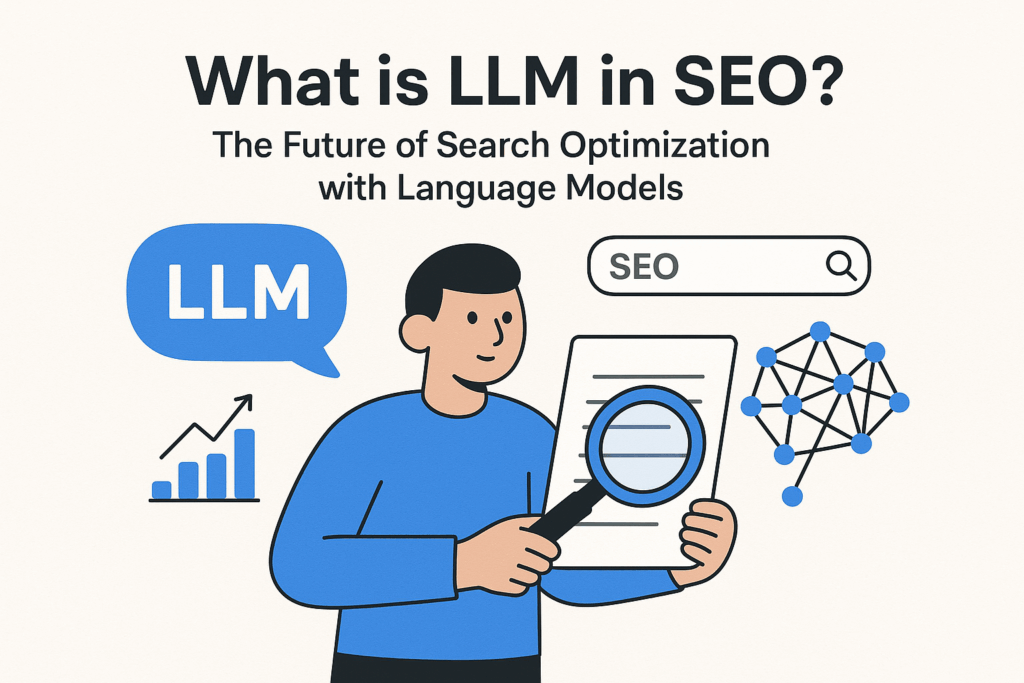Contents
- 1 What is SEO and How Does It Contribute to Digital Marketing?
- 2 The Key Benefits of Using SEO in Your Digital Marketing Strategy
- 3 Core Elements of SEO that Power Your Digital Marketing Strategy
- 4 AI and SEO: How Artificial Intelligence is Transforming Search
- 5 Should You Have an SEO Strategy?
- 6 How SEO Can Boost Your Business in the Long Term
- 7 How Google Ads Complement SEO Strategies
- 8 The Role of SEO in Driving Competitive Advantage
- 9 Maximizing Conversion Rate Optimization (CRO) with SEO
- 10 FAQs
In today’s digital landscape, visibility is everything. You might have the best product, a user-friendly website, and a solid business plan but without the right traffic, none of that matters. That’s where SEO (Search Engine Optimization) comes in. SEO isn’t just a buzzword, it’s the backbone of your digital marketing strategy. If you’re not focusing on SEO, you’re missing out on a powerful tool that can drive organic traffic, improve your website ranking, and engage customers like never before.
In this blog, we’ll explore why SEO is crucial for your business and how you can harness its power to improve your online presence.
What is SEO and How Does It Contribute to Digital Marketing?
SEO (Search Engine Optimization) is the process of optimizing your website to rank higher in search engine results pages (SERPs), primarily on Google. The goal of SEO is simple: increase visibility in search engines to drive organic traffic.
In digital marketing, SEO is not just an isolated tactic, it’s part of a holistic approach that helps businesses attract the right audience, improve conversion rates, and build authority online. By aligning your content with search intent, SEO ensures that your website appears in front of users who are actively searching for what you offer. This targeted approach maximizes your chances of converting those users into loyal customers.
The Key Benefits of Using SEO in Your Digital Marketing Strategy
1. SEO Increases Visibility and Improves Rankings
When your website ranks higher in SERPs, it naturally becomes more visible to potential customers. The higher your position, the more traffic you’re likely to attract. This increased visibility leads to more organic traffic, which is crucial for business growth. Studies show that the #1 result on Google receives up to 27.6% of clicks, far more than results further down the page.
At Napollo, we work with businesses to ensure their website is not only optimized for Google’s algorithms but also for the search intent of their target audience.
2. SEO Drives Web Traffic
SEO ensures that your website ranks for relevant, high-conversion keywords. The more relevant your content is to what users are searching for, the higher the organic traffic you’ll receive. Higher rankings in search engines lead to more visits, which provides opportunities to convert visitors into leads and customers. SEO brings targeted traffic, meaning the people who visit your site are already looking for what you offer.
3. SEO Shows Authority
Page Authority (PA) and backlink strategies are key in establishing your site’s credibility. When authoritative sites link to your content, Google recognizes your site as trustworthy, which positively impacts rankings. At Napollo, we help businesses build quality backlinks and develop content marketing strategies that establish their authority and increase website ranking.
4. SEO Enhances User Experience (UX)
SEO is not just about keywords and backlinks; it’s about creating a seamless experience for your users. Optimizing for mobile optimization, improving website speed, and focusing on user interface (UI) design are all essential elements of SEO that contribute to a positive user experience (UX). When visitors can navigate your site quickly and easily, they’re more likely to engage and convert.
Core Elements of SEO that Power Your Digital Marketing Strategy
1. Keywords
Effective keyword research is the foundation of any successful SEO strategy. Understanding search intent and selecting keywords that align with your target audience’s needs allows you to optimize your content and rank higher in search results.
At Napollo, we help businesses identify the best keywords to target, from short-tail to long-tail keywords that drive the most qualified traffic.
2. Content
Content is at the heart of SEO. Google rewards websites that create high-quality, relevant, and informative content. By crafting content that speaks directly to your audience’s needs, you can improve rankings, drive organic traffic, and enhance customer engagement.
Our content creation team specializes in building content that not only resonates with users but also adheres to SEO best practices, ensuring your business stays visible and relevant in the eyes of Google.
3. Off-Page SEO
Building backlinks from authoritative websites helps boost your site’s credibility and SEO. At Napollo, we develop robust off-page SEO strategies, ensuring that your website gains valuable backlinks from trusted sources.
4. Local SEO
For businesses targeting local customers, local SEO is critical. Optimizing your Google My Business profile and using local keywords will help you appear in search results for “near me” searches. This is essential for brick-and-mortar businesses looking to attract local clientele.
5. Technical SEO
Technical SEO ensures that your website meets the technical requirements of search engines. This includes optimizing page speed, ensuring mobile responsiveness, and fixing crawl errors to ensure that your website is indexed correctly by search engines.
AI and SEO: How Artificial Intelligence is Transforming Search
What Impact is AI Having on SEO?
AI-powered algorithms like Google’s RankBrain, BERT, and MUM (Multitask Unified Model) are revolutionizing SEO by focusing on understanding user search intent and context. These algorithms have made SEO more sophisticated, allowing for better results that match the needs of searchers. Additionally, Google’s Search Generative Experience (SGE) is enhancing the search experience with more dynamic and accurate results.
Should You Have an SEO Strategy?
The Need for an SEO Strategy
Without an SEO strategy, your website will struggle to gain visibility in Google search results. A well-structured SEO strategy helps you stay competitive, attract organic traffic, and improve rankings. By focusing on content creation, backlink strategies, and technical SEO, businesses can build a solid foundation for long-term growth.
Why SEO Should Be Part of Your Marketing Plan
SEO should not exist in a silo. When integrated with content marketing, PPC, and social media optimization (SMO), SEO provides a comprehensive strategy that maximizes your brand’s reach and conversions.
How SEO Can Boost Your Business in the Long Term
Build Trust and Credibility with Customers
A strong SEO strategy builds trust by ranking your website on the first page of search results. By adhering to E-E-A-T (Experience, Expertise, Authoritativeness, Trustworthiness), you can position your brand as a trusted authority in your industry.
Improve User Experience (UX)
SEO also focuses on enhancing the user experience (UX) by optimizing website speed, improving navigation, and ensuring your website is responsive across all devices.
Increase Lead Generation
SEO drives organic traffic and positions your website to attract high-quality leads. By optimizing for keywords that match search intent, you ensure that the visitors you attract are genuinely interested in your product or service, leading to increased lead generation.
How Google Ads Complement SEO Strategies
Paid Search vs. Organic Search
While SEO is essential for long-term visibility and sustained traffic, Google Ads offers an immediate boost. By using PPC (Pay-Per-Click) ads, businesses can drive instant traffic to their website, even while working on improving their organic search rankings through SEO.
In short, Google Ads complement SEO by helping businesses reach new customers quickly, while SEO focuses on building long-term visibility and authority in Google’s SERPs.
Using Google Analytics & Google Search Console to Monitor SEO Performance
Boosting SEO with Paid Campaigns
Google Analytics helps track website traffic, user behavior, and conversions, offering insights to refine your SEO strategy and improve performance. Google Search Console is essential for monitoring site health, indexing status, and keyword performance, helping you identify issues and fine-tune SEO efforts to boost visibility and rankings.
Using Google Ads alongside SEO efforts allows businesses to target competitive keywords and attract immediate attention. As you build your organic rankings, paid campaigns help keep your brand visible. Over time, both strategies work together, driving higher traffic and conversions.
The Role of SEO in Driving Competitive Advantage
Outrank Your Competition
A comprehensive SEO strategy helps businesses surpass their competitors in organic search results. At Napollo, we use backlink strategies, content optimization, and local SEO to ensure our clients maintain a competitive edge.
Maximize ROI with SEO
Unlike paid ads, SEO provides a long-term ROI. Once you reach the top rankings, you can maintain those positions without continuous investment. This makes SEO a highly cost-effective strategy for sustainable growth.
Maximizing Conversion Rate Optimization (CRO) with SEO
Combining SEO with Conversion Rate Optimization (CRO) ensures your website is optimized for both search engines and users. By improving user experience (UX) with faster load times, mobile optimization, and easy navigation, you increase engagement and reduce bounce rates, while A/B testing of content and CTAs helps improve conversion rates, leading to more successful outcomes from SEO traffic.
Conclusion:
SEO isn’t just a tactic, it’s a comprehensive digital marketing strategy that drives organic traffic, improves website ranking, enhances user experience (UX), and boosts customer engagement. Whether through content marketing, technical SEO, or backlink strategies, a strong SEO foundation ensures your business stays visible, competitive, and profitable in an increasingly digital world.
Partner with Napollo Software Design to create a customized SEO strategy that helps your business rise above the competition, drive more traffic, and generate lasting growth. Contact us today to get started!
FAQs
1. Why is SEO Important in Digital Marketing?
SEO is critical for increasing visibility and driving organic traffic to your website. It helps businesses rank higher on search engines, ensuring that potential customers find you. With SEO, your digital marketing strategy becomes more effective and results-driven.
2. What are the Key Benefits of SEO for Business?
SEO enhances brand visibility, improves website ranking, and drives quality traffic to your site. It builds trust and credibility, reduces marketing costs in the long term, and ensures businesses can convert more visitors into loyal customers.
3. Why is SEO Important for Small Businesses?
For small businesses, SEO offers an affordable way to compete with larger companies. By optimizing your website, small businesses can increase visibility, reach local customers, and attract targeted traffic, improving lead generation and conversion rates without large budgets.
4. What Is SEO and How Does It Work?
SEO stands for Search Engine Optimization, a technique used to enhance website visibility in search engines. It works by optimizing keywords, content, and backlinks to increase rankings. Effective SEO drives organic traffic, improving your website’s online presence.
5. Why Is SEO Crucial for Digital Marketing Success?
SEO is vital for digital marketing as it increases your website’s ranking on search engines. Higher rankings lead to more organic traffic, which translates into higher sales, better customer engagement, and improved ROI, making it essential for success.









